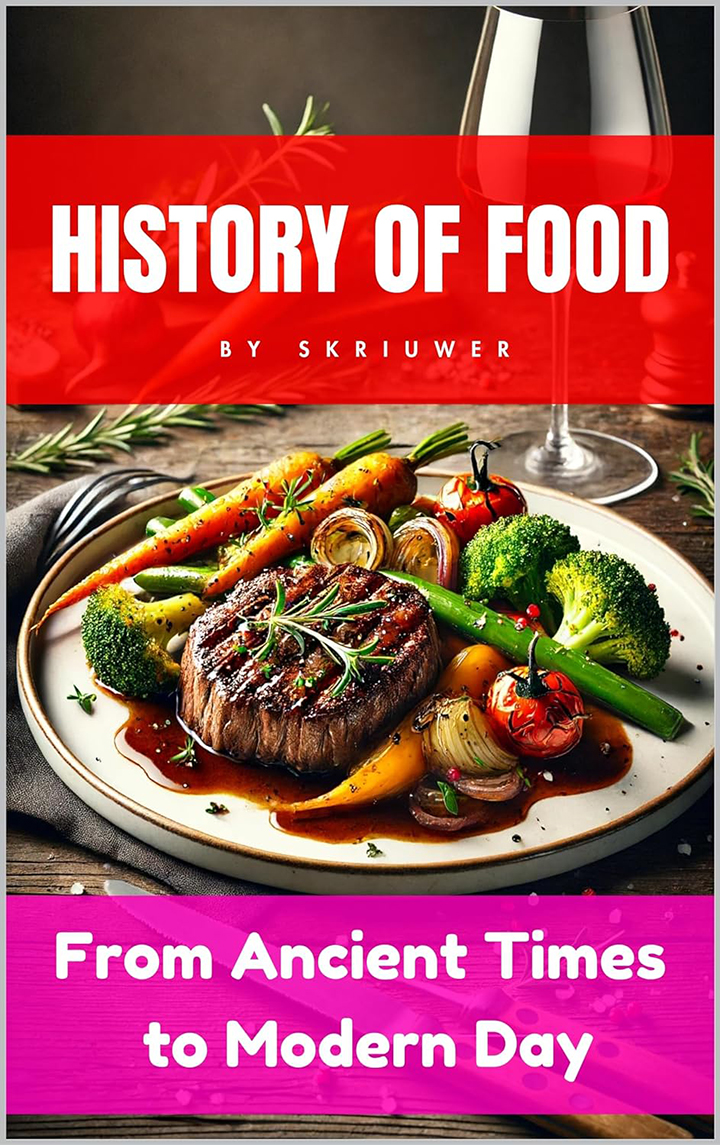The History of Food: From Ancient Times to Modern Day
The History of Food: From Ancient Times to Modern Day takes you on a trip through what people have eaten and how it has shaped our lives. This book shows why learning about food history matters, highlighting how food reflects culture, technology, and society.
Starting with early human diets, the book talks about what hunter-gatherers ate and how the discovery of fire changed everything. Learn about the Agricultural Revolution, the start of farming, and how villages and cities formed, changing human societies forever.
Explore ancient civilizations like Mesopotamia, Egypt, Greece, Rome, China, and India to find out what people commonly ate. Understand the Middle Ages, where feudalism influenced what peasants and nobles ate, and see how spices and trade routes changed European diets. The book also explains the Islamic Golden Age’s impact on farming and cooking.
The Age of Exploration brought the Columbian Exchange, introducing new foods like potatoes, tomatoes, and corn to Europe, changing diets around the world. Learn how colonialism mixed local and European food traditions.
The Renaissance and Early Modern Period saw new cooking techniques and the rise of professional chefs. Discover the elaborate feasts and dining customs of the time. The Industrial Revolution brought machines to farming, better food production, and processed foods, changing how food was made and sold in cities.
In the 20th century, world wars affected food supplies, leading to new ways to preserve and package food. Fast food chains started, and convenience foods became popular. Globalization spread international foods, influenced by media and food trends.
Modern food trends focus on health and nutrition, with a rise in organic and health foods, and the mixing of different global foods creating fusion dishes. Technology plays a role in genetically modified foods and sustainable farming, looking at the future of food production and environmental impacts.
The book ends by looking at the future of food, including lab-grown meat, plant-based alternatives, and global food security. It reflects on how food history shapes our present and what future trends might bring.
Complete with a glossary of terms, a timeline of major food events, suggested readings, and an index for easy reference, The History of Food offers a simple and complete guide to the past, present, and future of what we eat.
As an Amazon Associate I earn from qualifying purchases.
Categories: Recipe Books
Sorry, comments are closed for this item.

